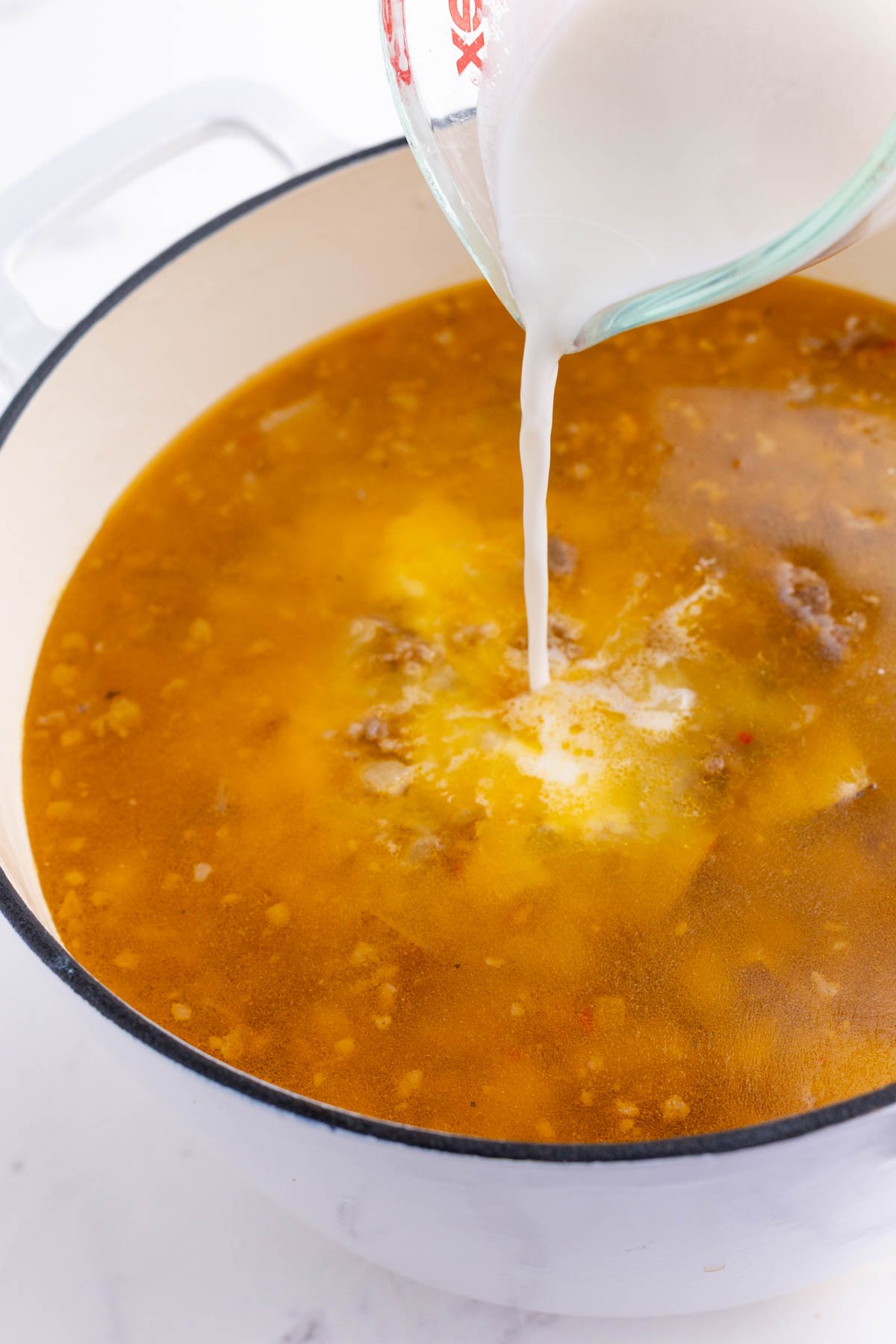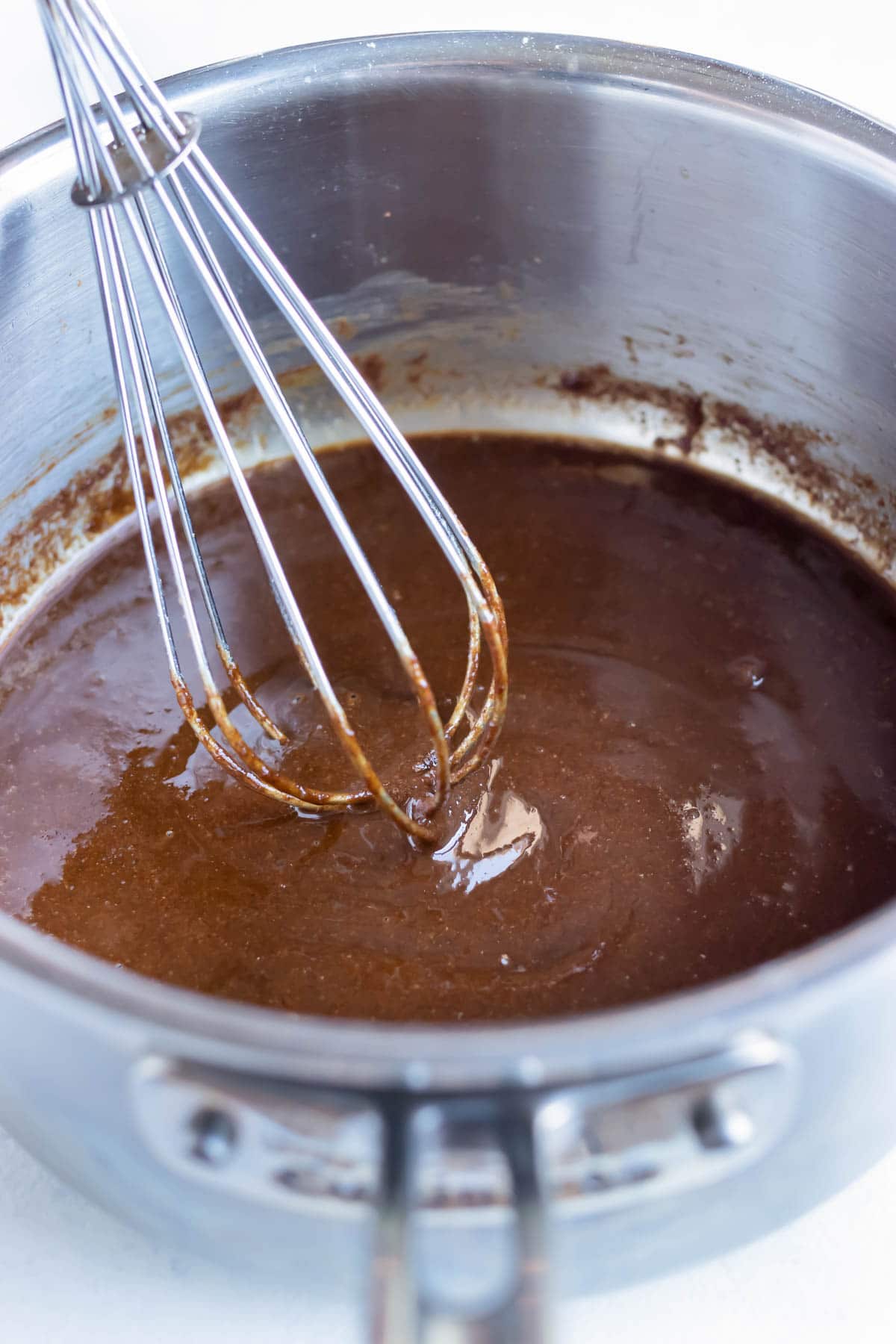Is your soup too thin and wondering how to thicken it? This post has all the tips and tricks for how to do this without changing its flavor. Following these methods will get you that silky texture you want in a hearty bowl of soup—all with ingredients you probably already have on hand!
Many home cooks find themselves wondering how to thicken a soup, and there are a few different ways: cooking the soup longer to remove excess liquid, blending some of the solid ingredients of the soup, or using food scraps like bread or potatoes to thicken the soup, but if you don’t have time to wait, you can use a …
/GettyImages-1221248806-64d34cecf1dd419b92662c55f3bde975.jpg)
Thicken with a Starch
Cornstarch is the best way to thicken up soup. To prevent clumping, simply whisk together a tablespoon of starch with either milk or water, warmed up. This mixture is known as a “slurry.”
With this method, you want a 1:4 ratio of starch to liquid. It won’t thicken right away, so let your soup boil for at least a minute. But don’t let it go for too long, or your soup will thin out again. This method is the easiest way, but if not done properly it won’t make much of a difference to your soup.
For more information, learn how to make a slurry.

All-purpose flour is like cornstarch, but you can do more with it. You’ll want a ratio of 2:1, flour to liquid (water or milk). You can use the same process as the cornstarch for making a slurry, where you mix the flour and warm liquid together before adding it to your thin soup.
You can also create a roux with flour and some kind of fat (butter, Crisco, oil). Using a 2:1 ratio, warm the fat in a pan, then add your flour and let it cook in whatever fat you’re using, whisking, until it turns into a golden brown paste.
Often a roux needs to be incorporated into a cold mixture to reduce clumping, but that’s not always the case. To really prevent any mishaps, simply scoop out a portion of the soup in a separate bowl and pour the roux in. Mix the two together, then add that back to the big pot of soup.

Xanthan Gum also acts like a starch, but it’s sugar-based. It has the potential to make your soup sweeter depending on how much you actually use, but it’s an excellent thickener or stabilizer. This one is tricky when it comes to clumping, so only whisk in a teaspoon at a time on low heat.
Thicken with Dairy
Heavy Cream. If you’re not a fan of slurries or roux, dairy is your next best method. Dairy adds a velvety texture that results in rich and creamy soups. Dairy can curdle your soup, so make sure to stick to higher-fat content products (coconut milk, heavy cream, sour cream) instead of milks.
For the best results, add heavy cream to your soup toward the end of cooking, when it’s not boiling. Adding a small amount of dairy at a time on a low heat will help you evenly incorporate it into your soup.

Yogurt or Buttermilk. To prevent any curdling at all, yogurt and buttermilk can be added to cold soup if you’re eating leftover soup. If you’re eating the soup the same day, add these thickening agents slowly to a pot of soup on low heat.
How to Thicken Stew, Soup, and Sauces with Roux | Chef Jean-Pierre
FAQ
Does cooking soup longer make it thicker?
Does soup get better the longer you cook it?
How do you reduce soup to make it thicker?
Does soup thicken when it cools?
Soup that contains some amount of starch, whether it be potatoes, rice, pasta, or an added thickener like cornstarch or flour will definitely thicken once it cools. “It won’t be a significant amount but starches once activated (brought to a boil) will retain this viscosity and continue to thicken slightly more as it cools.
Can oat milk be used to thicken soup?
Oat milk is a plant-based drink, and it’s a great one. Because it is rich in insoluble fibers that help stimulate natural bowel movements. Considering being used in preparations such as soup, vitamins, creams.
How do you thicken soup?
Here are a few easy ways to thicken soup. Sometimes soup just needs to simmer longer to reach the perfect consistency. Check to see if the vegetables are tender, and then taste the broth. If the soup tastes a bit watery, give it more time. If the broth tastes well-seasoned and flavorful, use one of the methods below.
Can You thicken soup in a slow cooker?
There are plenty of methods for thickening soup, both during the cooking process and afterward, whether you’re making a soup recipe on the stove or in the slow cooker. There are plenty of methods for thickening soup, both during the cooking process and afterward, whether you’re making a soup recipe on the stove or in the slow cooker.
